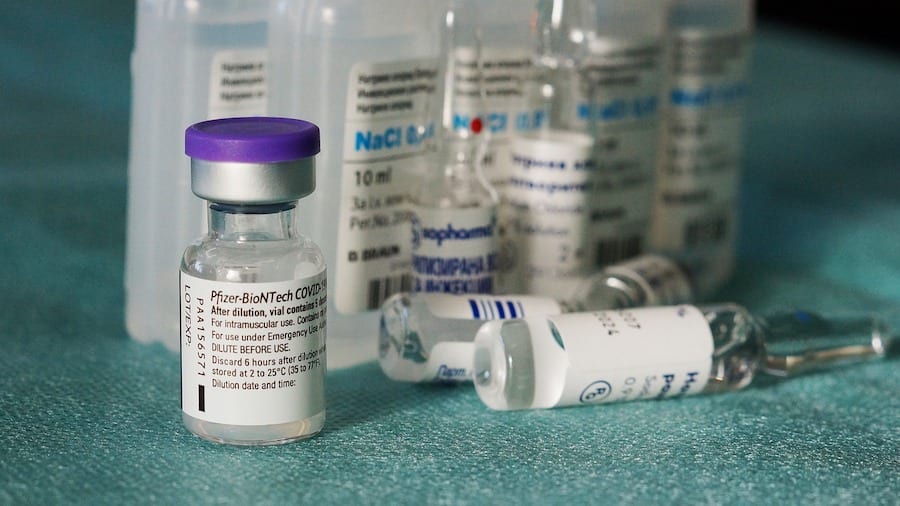The mRNA Pfizer vaccine, the only inoculation currently administered in Monaco, reduces the risk of Covid infection by 91% in fully vaccinated people, according to a new CDC study.
In a statement released by the US Centres for Disease Control and Prevention (CDC), the results add “to the growing body of real-world evidence of the vaccines’ effectiveness.”
According to the study, only 5% of fully vaccinated participants tested positive for coronavirus.
Even partially vaccinated people are 81% less likely to become infected than people who haven’t been inoculated.
The ongoing study examines the effectiveness of the mRNA Covid-19 vaccines Pfizer-BioNTech and Moderna.
“Covid-19 vaccines are a critical tool in overcoming this pandemic,” said CDC Director Rochelle P. Walensky, MD, MPH. “Findings from the extended timeframe of this study add to accumulating evidence that mRNA Covid-19 vaccines are effective and should prevent most infections — but that fully vaccinated people who still get Covid-19 are likely to have milder, shorter illness and appear to be less likely to spread the virus to others. These benefits are another important reason to get vaccinated.”
The data was collected from 3,900 health care workers, first responders, front line workers and other essential staff who are more likely to be exposed to the virus because of their occupations. They were tested weekly between December 2020 and April 2021.
Those who became infected after being fully or partially vaccinated were more likely to have milder and shorter illness compared to those who were unvaccinated. For example, fully or partially vaccinated people who developed Covid-19 spent on average six fewer total days sick and two fewer days sick in bed. They also had about a 60% lower risk of developing symptoms, like fever or chills, compared to those who were unvaccinated. Some study participants infected with SARS-CoV-2 did not develop symptoms at all.
The study also found that fully or partially vaccinated people who got Covid might be less likely to spread the virus to others. There was, on average, 40% less detectable virus in a participants nose and they were 66% less likely to test positive for SARS-CoV-2 for more than one week compared to those who were unvaccinated.
“While these indicators are not a direct measure of a person’s ability to spread the virus, they have been correlated with reduced spread of other viruses, such as varicella and influenza,” said the CDC in a statement.
According to the Monaco government, the mRNA Pfizer-BioNTech is the only vaccination currently administered in Monaco. It has indicated that it would also use Moderna.
Everyone 12 years and older is now eligible to get a Covid-19 vaccination in Monaco and the government has renewed calls for as many people as possible to get the jab following a rise in circulation over the past weeks.
As of 17th June, 19,466 people in Monaco had received at least one Covid vaccine, equivalent to 56.53% of the eligible population. Of those, 81.3% had also received their second inoculation.
Photo source: Pixabay
Study shows Pfizer vaccine reduces infection by 91%
